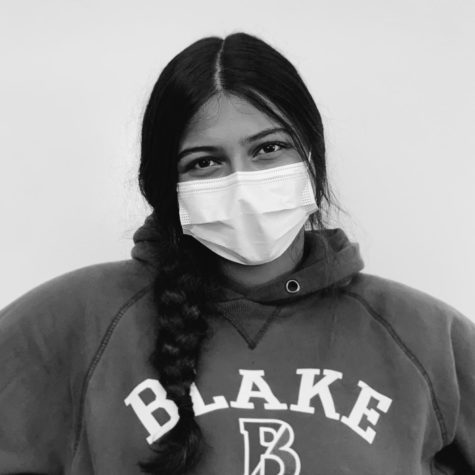Recent racial injustice and political unrest have led teachers to change their perspectives on educating and emphasized conversations about police brutality, equity, and race among faculty and staff.
Tyneeta Canonge, Director of the Office of Equity and Community Engagement (OECE), shares the emotional aspect of what she went through over the summer: “I went into a really dark place because of my personal experience with police violence and because I was just afraid for my family…And then the protests took a turn and people were coming in and infiltrating our city and trying to wreak havoc and that was again another to process and deal with. Are you safe even in your own house?”
Looking to the future, Class of 2022 Dean Anne Rubin says, “The police brutality against black and brown bodies is not new or a surprise to me. It is not shocking, new information, and I look forward to having more allies be thinking about what it means to do the work beyond cosmetic fixes to curriculum or practice.”
Division directors assigned summer reading to faculty to begin this work. Upper and middle school faculty read Stamped by Ibram X. Kendi Jason Reynolds. Lower school faculty read We Want to Do More than Survive by Bettina L. Love.
Canonge says that the goal of this reading was “trying to understand what it means to be in a space where whiteness is centered. What that means for white students and what that means for students of color and how we can do a better job of creating equity in the space and fostering an educational environment for all students to thrive.”
When faculty returned in the summer for professional development, they participated in activities outlined by Canonge and Pk-12 Department Chair for Equity and Instruction Lora McManus. These activities centered around a presentation and small group discussions using Cards on Race.
Last year, Spanish teacher JJ Kahle started leading BARWE meetings, a non-profit that stands for Building Anti-Racist White Educators. Kahle reflected on the group’s first meeting a year ago: “Everybody was kind of tense but we just started doing it, we followed the protocol that BARWE has set up. They supply the readings or sometimes it’s listening to a podcast, or sometimes it’s reading something and then you have essential questions that you answer and you have discussion around it.”
Despite the work that teachers like Kahle are putting in, they recognize that the power is not solely in their hands. Physics teacher, Steve Kaback says, “I really look to the students to take huge leadership in ushering old people to this point because you’re so much better at sharing your experiences and understanding them in a really immediate way and there’s going to be some old codgy folks who are going to need to be dragged along.”
Canonge says, “There is no institutional change without individual change. We all have a part to play in making sure that Blake is an antiracist institution. School administrators can say ëhere is how we want everyone to be thinking about this,í but unless each person in the community decides that theyíre going to make a commitment on their personal journey towards antiracism, it doesnít matter because the needle won’t move, and weíll still be in a space that is inequitable and where people are marginalized.”






